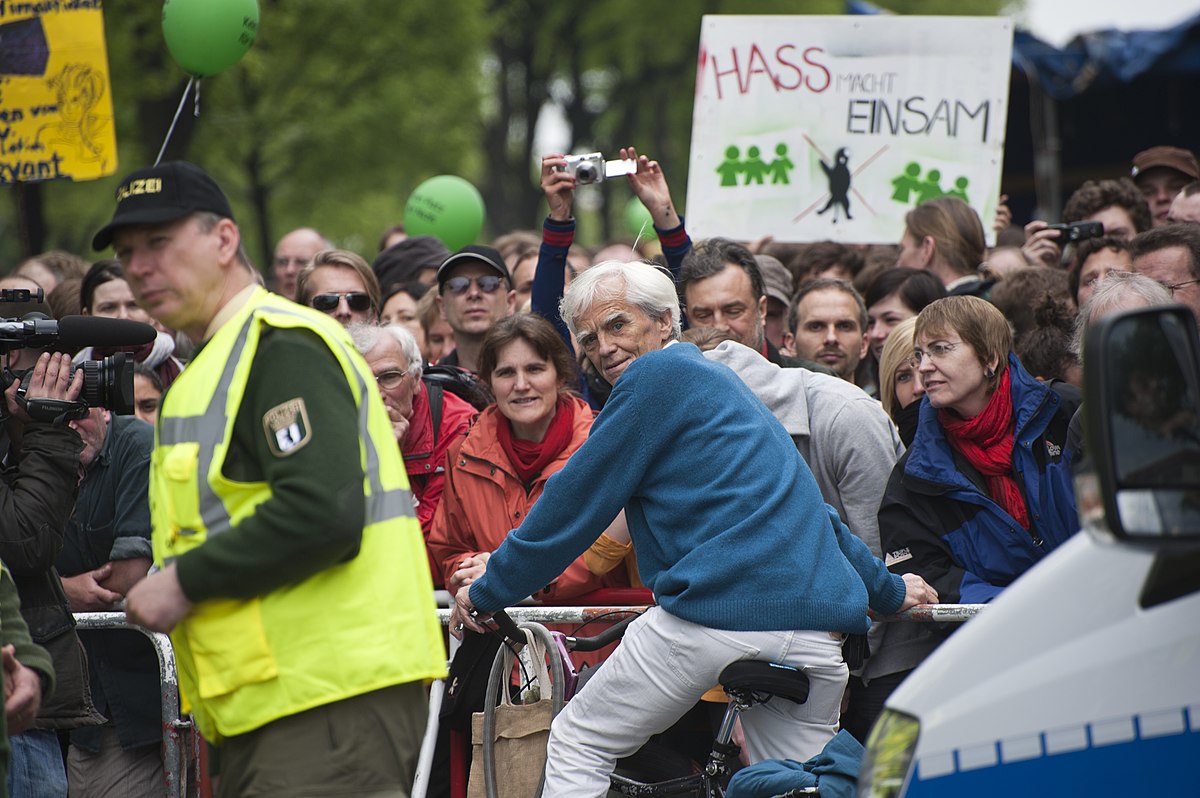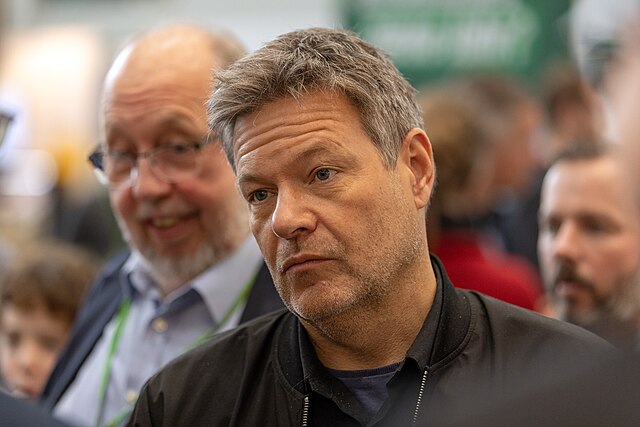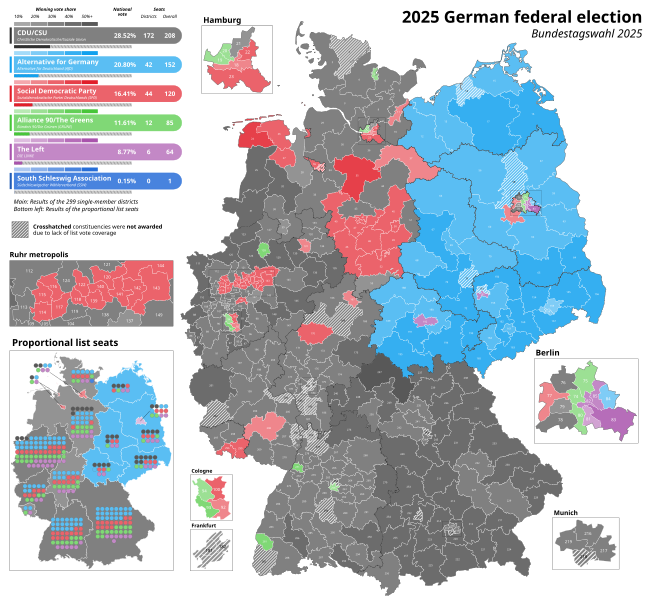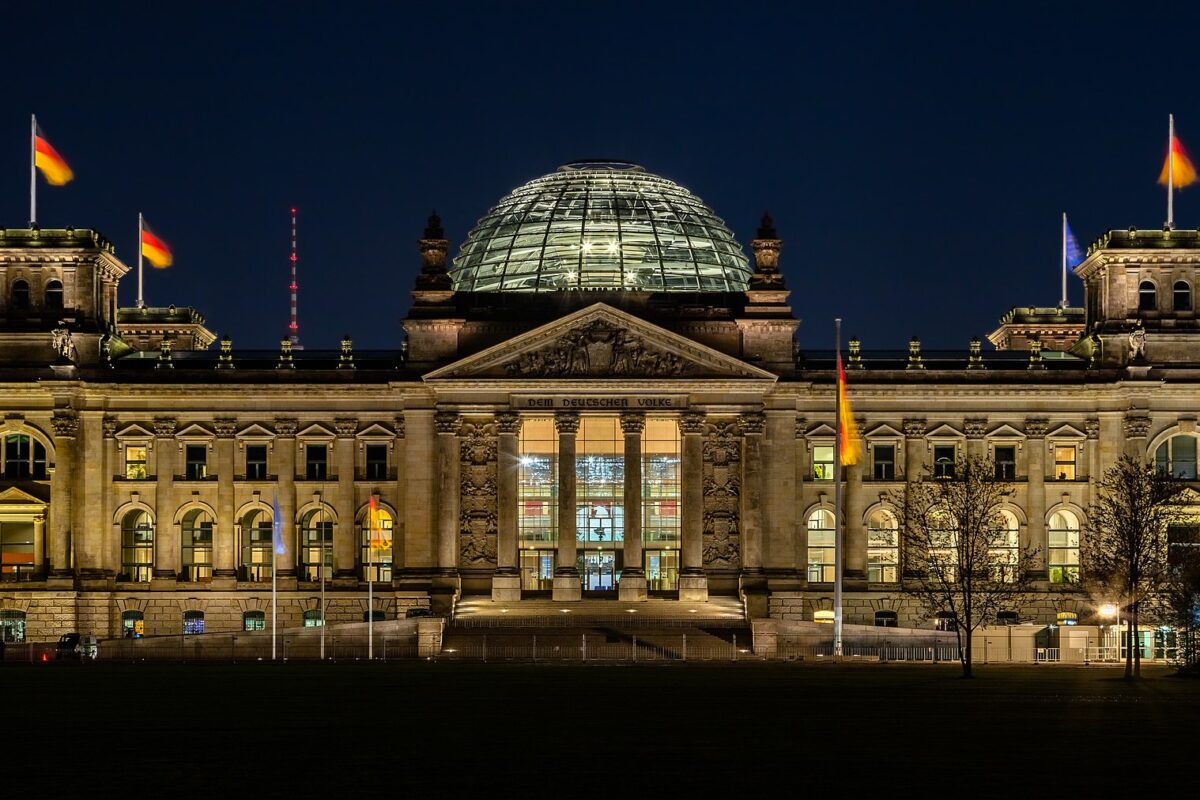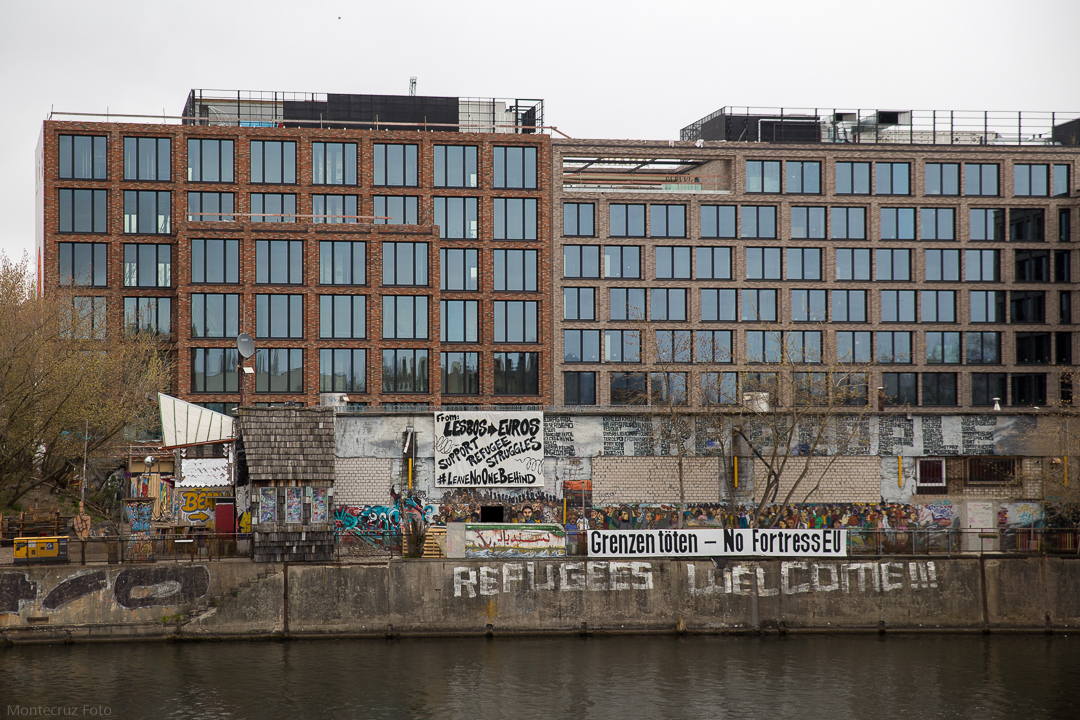Kreuzberg and Friedrichshain don’t fit together at all, but each neighborhood has a long history of rebelliousness. In Kreuzberg, people started squatting buildings in the late 1970s. Friedrichshain, in turn, became the center of Berlin’s counterculture in the 1990s, with numerous squats of its own. The two districts on opposite sides of the Spree were put into an uneasy marriage in 2001. For 15 years, from 2002 to 2017, Fhain-Xberg was represented in the Bundestag by the silver-haired, soft-spoken rebel Christian Ströbele.
Ströbele won his legendary status back in 1969 when he founded the Socialist Lawyers Collective to defend left-wing activists, including members of the Red Army Fraction (RAF). In the late 1970s, he helped found the alternative daily paper taz and West Berlin’s Alternative List, which eventually folded into Die Grüne. Until just a few years ago, Ströbele could be seen at just about every demonstration on his signature red bicycle.
Over the decades, Die Grüne got closer to power and abandoned every single one of their principles. Within one generation, they went from protesting against NATO missiles to being the most pro-NATO party in Germany today. In the late 1990s, die Grüne launched Germany’s first war of aggression since 1945, and carried out the biggest social cuts program in the history of the Federal Republic.
Thousands of old-school greens turned their backs on the party. Ströbele stuck around, though he consistently voted against his party. He retired in 2017, and died in 2022. His replacement, Canan Bayram, was Kreuzberg’s Die Grüne representative for two terms. Last year, however, Bayram declared that she “didn’t want to be a fig leaf” for such a right-wing party — she’s not even campaigning for Die Grüne this time around.
So who can leftists in Kreuzberg and Friedrichshain vote for?
Katrin Schmidberger (Die Grüne)
The person the Die Grüne picked to replace Ströbele and Bayram is not really known for anything. According to Wikipedia, Katrin Schmidberger was once a parliamentary assistant to Ströbele, and has been a member of the Berlin parliament since 2011. Personally, I have yet to meet anyone who knows her name or what she stands for. Does she go to demonstrations? Hard to say. Her main topic — really her only topic — appears to be housing policy.
To be fair, she doesn’t seem terrible on housing policy. In contrast to her party, which gets donations from realty speculators, Schmidberger supported the referendum to expropriate Berlin’s big corporate landlords, which 59% of voters approved back in 2021. At the same time, though, she was part of Franziska Giffey’s government coalition that actively sabotaged this democratic decision.
Looking through parliamentary records and social media posts, Schmidberger has impressive message discipline: she talks about housing policy and nothing else. She wants more public housing, and any leftist would agree. But how does she feel about her party spending 100 billion extra on the military instead? What does she think about Annalena Baerbock’s support for Israel’s genocide in Gaza? What does she think about Robert Habeck’s plan to radically increase deportations?
In contrast to the antimilitarist Ströbele, it’s almost as if Schmidberger has never heard of the multiple wars getting active support from German imperialism and its Grüne administrators. But Friedrichshain and Kreuzberg have changed due to gentrification, maybe this is just the kind of Grüne that new residents wants.
Pascal Meiser (Die Linke)
For people who miss Kreuzberg’s old school Grünen, Pascal Meiser of Die Linke is presenting himself as an alternative. He is also particularly focussed on housing policy, but can be seen outside of parliamentary committees — you run into him at demonstrations fairly often, in fact. Meiser is doing a cool campaign where he puts posters on buildings: “Why are there empty apartments here?” In the middle of a housing crisis, speculators are keeping an estimated 40,000 apartments empty. You also see him when workers at publicly owned companies like Vivantes and BVG go on strike for better wages.
But there’s a big contradiction here. Berlin’s housing crisis was caused by the privatization of several hundreds of thousands of housing units in the early 2000s — a policy carried out by Meiser’s party, Die Linke. The same party was responsible for drastic cuts in wages for public-sector employees. So while it’s nice for a “left” party to show support at a strike, workers can’t forget that they are on strike against the very same party. As far as I’m aware, Meiser has never once protested against his comrade ministers carrying out neoliberal policies. Die Linke has also deported thousands of people from Berlin — without any objections from Meiser.
Meiser has the same discipline as Schmidberger when it comes to avoiding questions of imperialism. Over 15 months of genocide, the only reference I could find was a link to an Israeli propaganda page. By the standards of Die Linke, this is relatively good — at least Meiser is not aggressively supporting genocide, like Dietmar Bartsch, Petra Pau, Gesine Lötzsch, and numerous other “left” politicians. Yet this is an awfully low bar. Imagine a “left-wing” politician anywhere else who carefully refuses to say a word about their own government supplying weapons to be used in a genocide.
I asked his office if he voted for the resolution in Solidarity with Israel from October 12, 2023, but got no response. He was no longer in parliament for subsequent resolutions in support of genocide, but Die Linke abstained both times, and Meiser hasn’t said anything at all.
Inés Heider
Statistically, it is quite likely the Die Grüne will get the seat. They won 38% four years ago (compared to 18% for Die Linke). Eight years ago, though, they won by less than two points. With Bayram’s retirement, Meiser might have a chance.
This time, there is a new candidate: the social worker Inés Heider is running on an anticapitalist program. She is also in favor of expropriating corporate landlords, like Schmidberger and Meiser say they are. Crucially, though, Heider is in favor of mobilization and self-organization. She doesn’t think progressive change can come around by getting elected to parliament and forming a government together with the SPD — as a communist, she calls for a workers’ government.
Heider is the only candidate to oppose all deportations — she openly calls for open borders, while Die Grüne want more deportations, and Die Linke are happy to keep deportations at their current rate. As an internationalist and anti-imperialist, Heider calls for blocking all weapons shipments to Israel, and for kicking both Putin and NATO out of Ukraine.
Generations of workers and leftists in Kreuzberg and Friedrichshain, even 150 years ago, voted for radical change instead of choosing the “lesser evil.” They were told they were “wasting their vote” — in reality, though, their support for independent, working-class candidates was preparing the future. This time, Friedrichshainers and Kreuzbergers can register their fundamental opposition to a rotten system.
